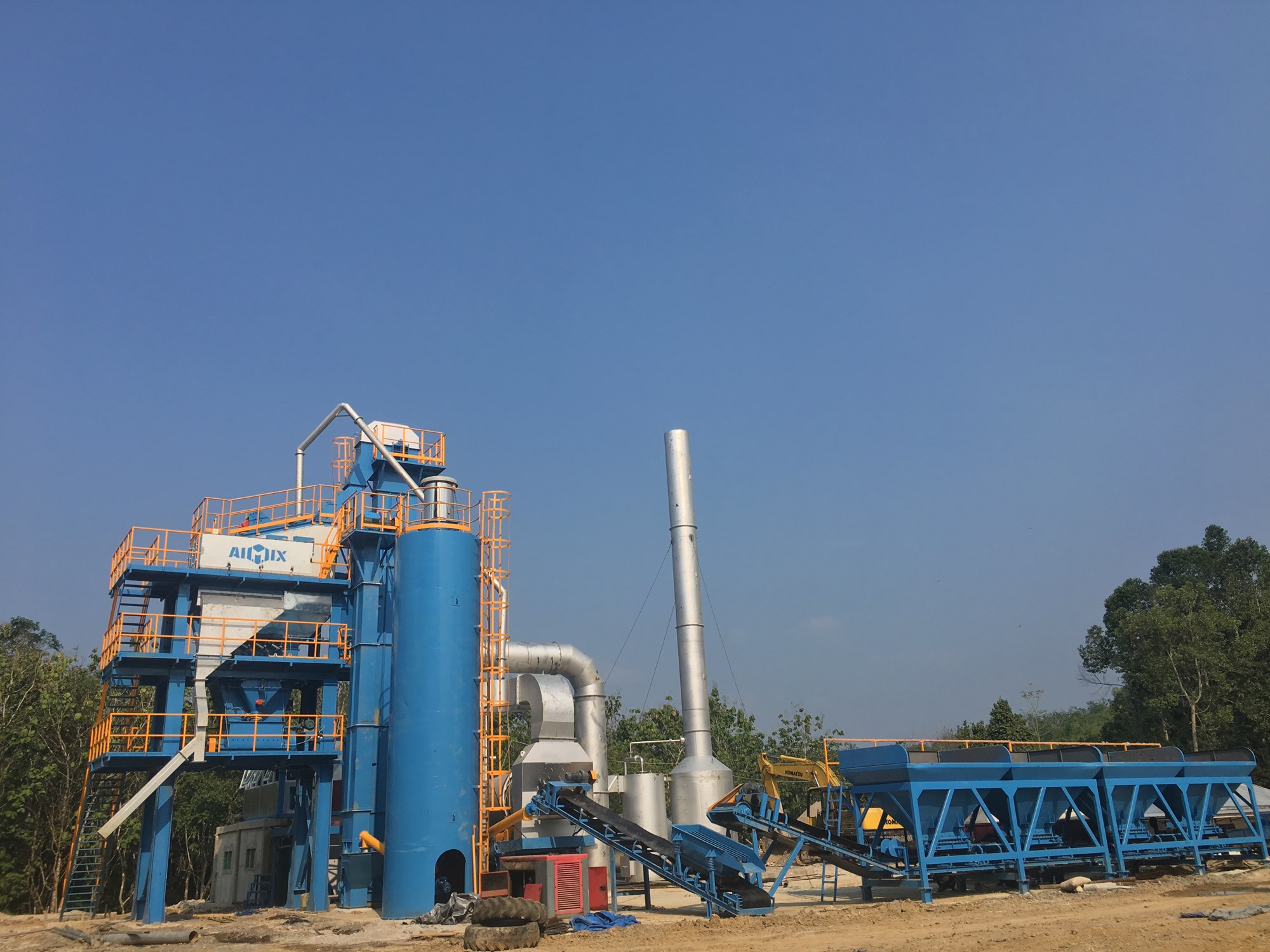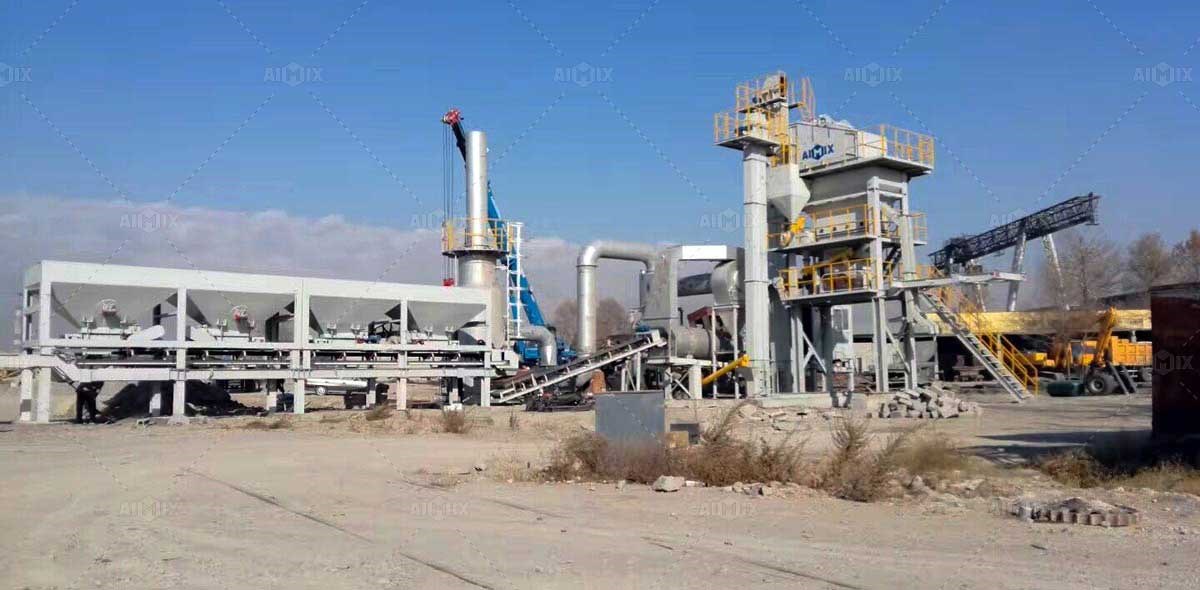28
0
0
How Asphalt Revolutionizes Highway Construction
Highway construction plays a vital role in connecting communities and facilitating economic growth. One of the key elements that revolutionized this industry is asphalt. With its exceptional properties and versatility, asphalt has become the go-to material for constructing durable and cost-effective roadways. In this article, we will explore how asphalt has transformed highway construction, ensuring safer and smoother journeys for all.
1. Durability and Longevity
Asphalt's remarkable durability is one of its greatest advantages. It can withstand heavy traffic loads, extreme weather conditions, and the test of time. The binding properties of asphalt create a flexible pavement surface that can adapt to changing environmental conditions, reducing the risk of cracks and potholes. This durability translates into longer-lasting highways, reducing maintenance costs and minimizing disruptions caused by repairs.
2. Quick Construction and Rehabilitation
Time is of the essence in highway construction, where minimizing disruptions and ensuring swift completion are crucial. Asphalt offers a significant advantage in this regard due to its quick construction and rehabilitation process. Its rapid setting time allows for expedited paving operations, minimizing road closures and traffic congestion. Additionally, asphalt overlays can be used to rehabilitate existing road surfaces, extending their lifespan without the need for complete reconstruction.

3. Cost Effectiveness
Budget considerations often drive infrastructure projects, making cost-effectiveness a critical factor. Asphalt offers an economic solution for highway construction. The availability of raw materials and efficient manufacturing processes make it cost-competitive compared to alternative pavement materials. Furthermore, its long lifespan and low maintenance requirements result in lower life-cycle costs, saving taxpayers' money in the long run.
4. Enhanced Safety Features
Safety is a top priority in highway construction, and asphalt contributes significantly to this aspect. Its smooth and skid-resistant surface improves vehicle traction and reduces braking distances, enhancing overall road safety. Moreover, asphalt's dark color provides better visibility in wet conditions, reducing the risk of accidents. Additionally, asphalt's ability to reduce noise levels on highways improves driver concentration and helps prevent fatigue-related incidents.
5. Eco-Friendly Approach
As environmental concerns grow, highway construction must embrace sustainable practices. Asphalt offers several eco-friendly advantages. First, it is a recyclable material, allowing for the reuse of old asphalt in new pavement through the process of milling and recycling. This reduces the demand for virgin materials and minimizes waste generation. Furthermore, the energy required to produce and construct asphalt pavements is relatively low compared to alternative materials, resulting in reduced carbon emissions.

6. Innovation and Technological Advancements
The asphalt industry continues to evolve with technological advances that further revolutionize highway construction. Innovations such as warm-mix asphalt (WMA) have emerged, allowing paving to be performed at lower temperatures. This reduces fuel consumption, decreases greenhouse gas emissions, and enhances worker safety. Additionally, advanced additives and modifiers are being developed to enhance the performance characteristics of asphalt, improving resistance to rutting, cracking, and aging.
Asphalt has undoubtedly revolutionized highway construction, offering durability, quick construction and rehabilitation, cost-effectiveness, enhanced safety features, sustainable practices, and ongoing technological advancements. Its versatility and adaptability make it the material of choice in building high-quality roadways that withstand the challenges of heavy traffic and diverse weather conditions. By embracing asphalt, we can continue to create safer, more efficient, and sustainable transportation networks for the benefit of communities worldwide.
1. Durability and Longevity
Asphalt's remarkable durability is one of its greatest advantages. It can withstand heavy traffic loads, extreme weather conditions, and the test of time. The binding properties of asphalt create a flexible pavement surface that can adapt to changing environmental conditions, reducing the risk of cracks and potholes. This durability translates into longer-lasting highways, reducing maintenance costs and minimizing disruptions caused by repairs.
2. Quick Construction and Rehabilitation
Time is of the essence in highway construction, where minimizing disruptions and ensuring swift completion are crucial. Asphalt offers a significant advantage in this regard due to its quick construction and rehabilitation process. Its rapid setting time allows for expedited paving operations, minimizing road closures and traffic congestion. Additionally, asphalt overlays can be used to rehabilitate existing road surfaces, extending their lifespan without the need for complete reconstruction.

3. Cost Effectiveness
Budget considerations often drive infrastructure projects, making cost-effectiveness a critical factor. Asphalt offers an economic solution for highway construction. The availability of raw materials and efficient manufacturing processes make it cost-competitive compared to alternative pavement materials. Furthermore, its long lifespan and low maintenance requirements result in lower life-cycle costs, saving taxpayers' money in the long run.
4. Enhanced Safety Features
Safety is a top priority in highway construction, and asphalt contributes significantly to this aspect. Its smooth and skid-resistant surface improves vehicle traction and reduces braking distances, enhancing overall road safety. Moreover, asphalt's dark color provides better visibility in wet conditions, reducing the risk of accidents. Additionally, asphalt's ability to reduce noise levels on highways improves driver concentration and helps prevent fatigue-related incidents.
5. Eco-Friendly Approach
As environmental concerns grow, highway construction must embrace sustainable practices. Asphalt offers several eco-friendly advantages. First, it is a recyclable material, allowing for the reuse of old asphalt in new pavement through the process of milling and recycling. This reduces the demand for virgin materials and minimizes waste generation. Furthermore, the energy required to produce and construct asphalt pavements is relatively low compared to alternative materials, resulting in reduced carbon emissions.

6. Innovation and Technological Advancements
The asphalt industry continues to evolve with technological advances that further revolutionize highway construction. Innovations such as warm-mix asphalt (WMA) have emerged, allowing paving to be performed at lower temperatures. This reduces fuel consumption, decreases greenhouse gas emissions, and enhances worker safety. Additionally, advanced additives and modifiers are being developed to enhance the performance characteristics of asphalt, improving resistance to rutting, cracking, and aging.
Asphalt has undoubtedly revolutionized highway construction, offering durability, quick construction and rehabilitation, cost-effectiveness, enhanced safety features, sustainable practices, and ongoing technological advancements. Its versatility and adaptability make it the material of choice in building high-quality roadways that withstand the challenges of heavy traffic and diverse weather conditions. By embracing asphalt, we can continue to create safer, more efficient, and sustainable transportation networks for the benefit of communities worldwide.
Signatur